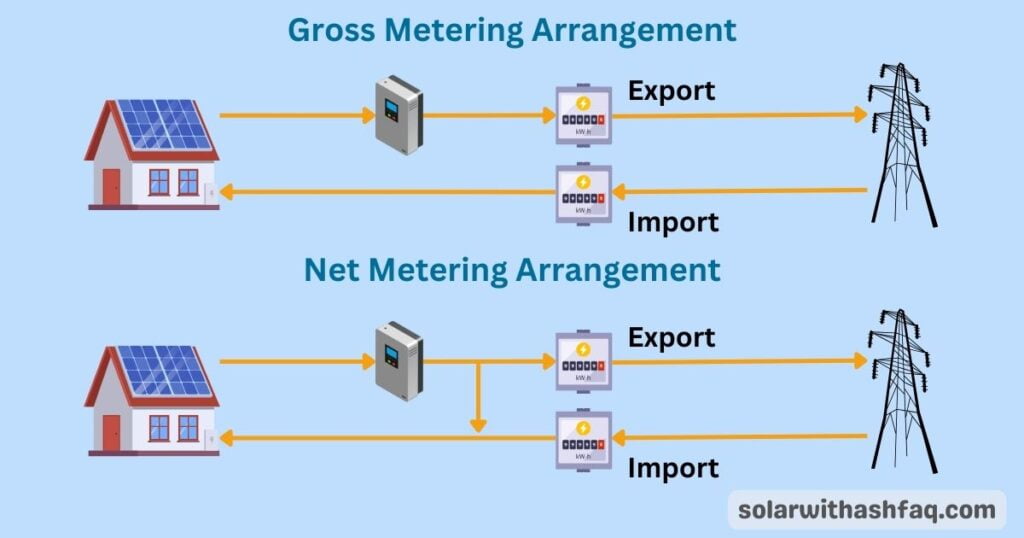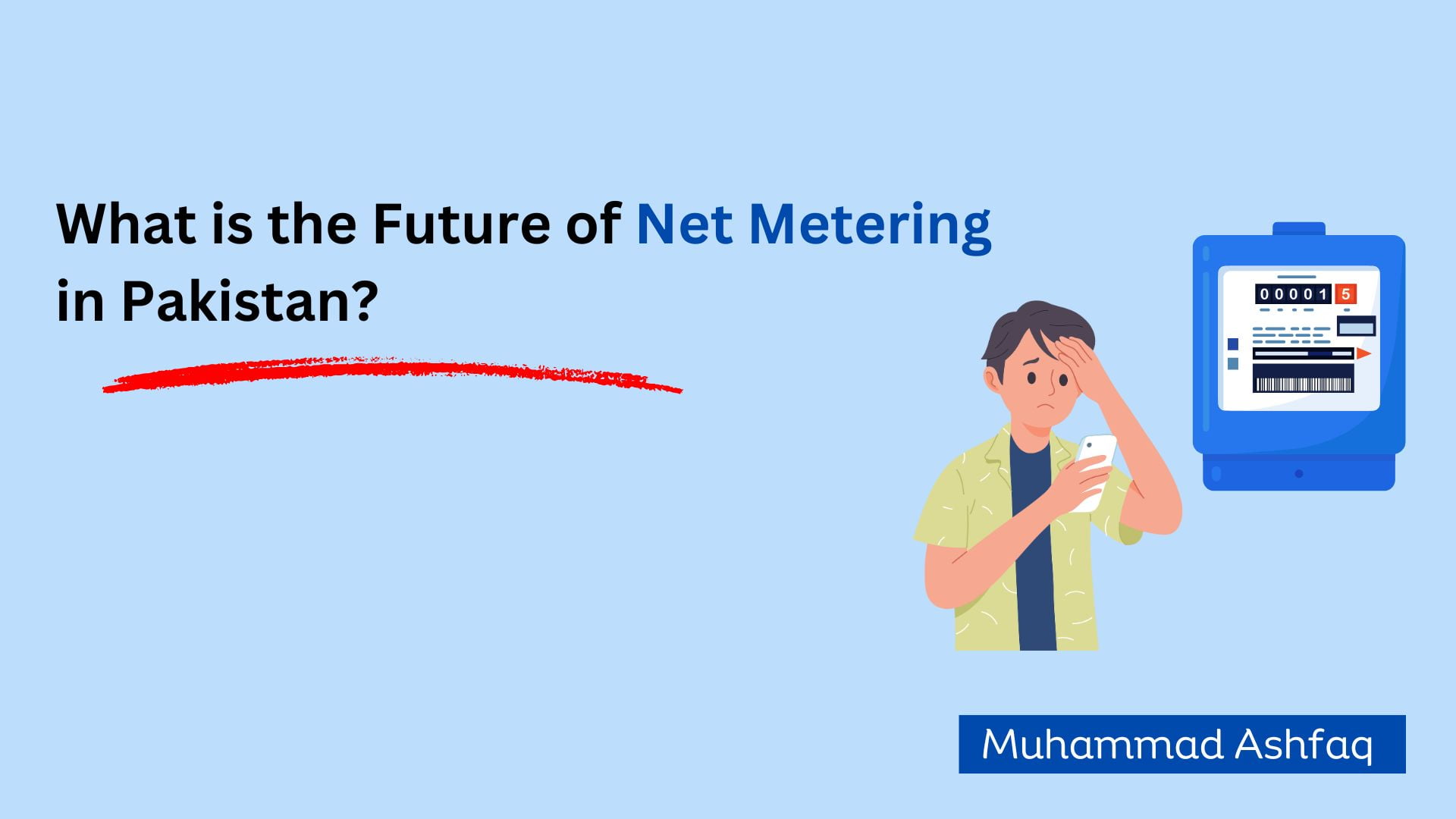What is the Future of Net Metering in Pakistan?
The Pakistani government’s recent proposed adjustments to net metering regulations have caused some uncertainty among the public.
It’s natural to question whether solar is still a worthwhile investment, especially with the reduced payback price.
In this guide, I’ll provide a clear and informative overview of the future of net metering in Pakistan, so you can make the best decision for your future.
What is the Current Status of Net Metering?
Net metering is a billing mechanism that credits solar panel owners for the electricity they add to the grid. Essentially, it allows you to “bank” the excess electricity your solar panels generate and use it when you need it, like at night or on cloudy days.
In 2022-2023, we’ve seen a mushrooming growth in rooftop solar installations, and the total number of net metering connections has reached 113,000.
In fact, in the last year alone, the number of connections went up by 125%—that’s impressive.
However, it’s important to note that net metering is not a win-win situation for the grid. This is something that policymakers are actively working to address.
Why Government is Concerned About Net Metering?
The government is worried about the increasing adoption of solar panels. While this is great for homeowners looking to save on electricity bills, it’s creating some challenges for the government.
You see, Pakistan’s current average base tariff is Rs29.79 per unit, and a significant portion of that – Rs17 per unit – goes towards capacity payments or idle payments.
These are payments made to independent power producers (IPPs) for electricity that is generated but not used.
Further, during the first ten months of the current fiscal year, Pakistan has imported around 6,800 megawatts of solar panels.
With more and more homes installing solar panels and generating their own power, the overall demand for grid-supplied electricity is decreasing.
However, the government is still obliged to pay these capacity charges to the IPPs, even though the electricity isn’t being consumed.
And when the number of people using Wapda electricity decreases, then capacity payments are distributed to the remaining consumers which means they have to pay more.
What Government is Planning?
The Ministry of Energy is taking a two-pronged approach to tackle this issue.
Firstly, they’re looking to reduce the net metering rate in Pakistan (buyback price) for excess solar electricity from the current Rs. 22 per kWh down to Rs. 9 per kWh.
Secondly, the government has informed the IMF that they want to replace the net metering policy with a gross metering (explained below) system for rooftop solar panels.
If they don’t make these adjustments, the cost of electricity for the remaining grid-connected consumers will increase.
What is Gross Metering?
Gross metering is a bit different from net metering, which is the more well-known system. With net metering, your solar panels generate electricity, and any excess power is sent back to the grid. Your utility company then credits you for that excess energy.
With gross metering, however, all the electricity generated by your solar panels is fed directly into the grid. You cannot use electricity generated by your solar panels rather you will use the grid power (Wapda) to power your home.
Your utility company will pay you a fixed rate (lower than the Wapda rate) for every unit of electricity your system produces.
In this case,, two meters will be installed separately – one to track the electricity you use from the grid, and another to track the electricity your solar panels send to the grid.

What Does it Mean For Those Who Already Installed Solar?
If you’ve already installed solar panels on your rooftop, the recent statement from the Energy minister won’t affect you as quoted below.
Consumers who have already set up solar power and have a net-metering contract with their local electricity company will not be impacted by any changes.
Owais Laghari
Additionally, the license was issued for 7 years to those who have already installed solar and the government is bound to obey it.
So rest assured, you will not be affected by gross meeting if adopted.
Is Solar Worth it in the Future?
You may be wondering if investing in solar power is still worth it in 2024, especially with the government’s proposed changes to the net metering program.
While the details are still being finalized, I can assure you that solar remains a smart long-term investment for several reasons.
- The current electricity rate in Pakistan, including all taxes, is already at a staggering Rs. 62 per unit. With the decreasing cost of solar panel technology, the per-unit cost of solar is significantly lower than that.
- Electricity prices in Pakistan are increasing every quarter, and they continue to rise to alarming levels. By installing solar panels, you can lock in your energy costs and protect yourself from these price hikes.
Wrapping Up
With no signs of electricity rates going down, solar is one of the best ways to take control of your energy costs and insulate yourself from unpredictable government policies in the future.
The key is to carefully evaluate your options and choose the right system for your needs and budget.
Frequently Asked Questions

Content Writer | Assistant Manager (Electrical) at IESCO
As a passionate content writer, I’m on a mission to make solar hassle-free for you through my expert guides and easy-to-digest content.

